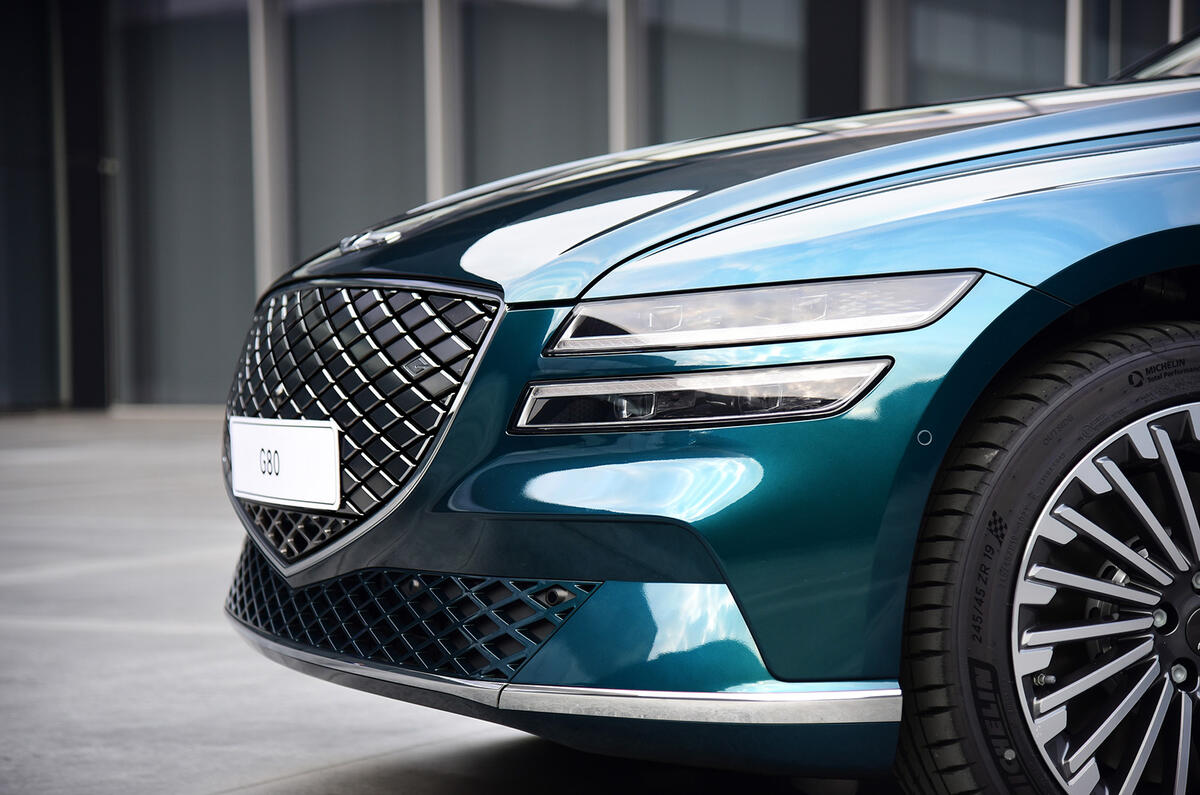The Hyundai Motor Group has made a series of increasing bold moves in recent years, from developing a range of performance cars to the launch of a whole new electric vehicle sub-brand. But the launch of Genesis as a new stand-alone premium brand is arguably its biggest leap yet.
Breaking into the premium market is a huge challenge. That’s evident not just from the many failures (such as Infiniti) but even from the successes. Lexus, for example, might now be established in the UK, but it’s taken Toyota 30 years to really build up its premium brand, and it’s still dwarfed in the sales charts by its German rivals.
Hyundai’s record gives reason to believe that Genesis has the potential to succeed. Look at how far both Hyundai and its sibling Kia have come in the past decade or so, from upstart budget brands to credible mainstream manufacturers. And with the N performance division, Hyundai has shown it can succeed in new market segments.
The key to Hyundai’s growth has been strong products, and Genesis will launch in the UK with a multi-car range and clear plans to rapidly grow it. We’ve yet to try those cars in the UK, of course, but we know they’ll have decent Hyundai underpinnings. And there are plans for a number of electric cars, playing into a growing market segment that Hyundai Motor Group has exploited well in recent years.
Genesis’s online-focused sales plan also reduces the need to slowly build a full dealer network and reflects changing buying patterns. Offering subscription schemes and a ‘personal assistant’ service also follows recent trends.
So the foundations are all in place for Genesis to find success. But it will still be a huge challenge. Premium buyers tend to be drawn to badge, tradition and reputation. You can’t rush those things, no matter how good your products are.
To succeed, Genesis needs to build a reputation. And to do that, it needs to give people a reason to switch brands. Simply producing credible, premium cars isn’t enough: it has to make people aspire to drive a Genesis. It has to stand for something.
Creating a brand identity is a big challenge and will take time. But it can be done. With Genesis, the Hyundai Motor Group is showing its ambition. Now it needs to follow up with the product. But the most important aspect could well be showing patience.
READ MORE




Join the debate
Add your comment
Genesis in the US has weathered 2 strong headwinds.
Firstly, the dealer network was shared with Hyundai - Genesis buyers do not receive a 'premium' buying experience unlike the competition who have unique premium brand dealerships (example Lexus) to differentiate the buying experience from their volume brands (Toyota). Genesis tried in part to counteract this with online experiences and 'valet service' but only so much can be done online and call centers are still shared.
Secondly, very high Genesis depreciation drives low new vehicle residual values so much so that Genesis leasing rates often exceed the competition despite their higher list prices. In the US, the executive market is leasing-dominated for executive saloons/sedans.
Having sat into top-of-line Genesis models, the fit and finish will not impress current owners of the established players (despite online pics). In the US, Genesis will likely add another nail to the domestic luxury brands coffins rather than really take on the German established community. After the failure of the Japanese luxury brands to dominate the European market, I suspect Genesis will face strong headwinds here too.
What are 'premium buyers'?!
The English language is under assault, but you'd hope journalists working for such a well-established magazine might hold higher standards.
One of the issues in relying on internet selling, is not being able to get enough bums on seats. This will inevitably restrict a new brand with no history or track record, but are expecting sales at premium prices.
Apart from a few 'early adopters' of anything new and dfferent, where are the buyers going to experience the product?